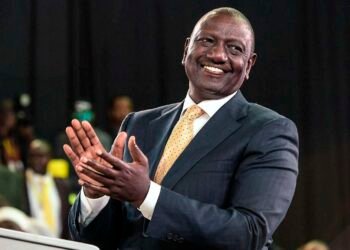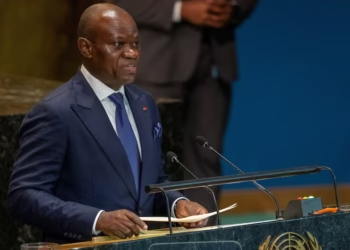Sudan’s coup leaders and the main pro-democracy group signed a framework deal on Monday, December 5, 2022 to establish a civilian-led transitional government following the October 21 coup.
However, key players refused to participate and no deadline was set for the transition to begin.
The deal signed by Gen. Abdel-Fattah Burhan, Gen. Mohammed Hamdan Dagalo and the leaders of the Forces for the Declaration of Freedom and Change seems to offer only the broadest outlines for how the country will resume its progression to democracy.
That process was toppled in October 2021, when Gen. Abdel-Fattah Burhan ousted the civilian half of Sudan’s ruling Sovereignty Council with Gen. Mohammed Hamdan Dagolo’s support.
Since the coup, international aid has shriveled. Bread and fuel shortages, caused in part by the war in Ukraine, have become routine, sinking Sudan’s already inflation-riddled economy into deeper peril.
Security forces have mercilessly suppressed near-weekly pro-democracy marches.
It’s uncertain as to whether or how quickly the deal signed on Monday can offer a way out for Sudan, given that it appears to leave many pertinent issues unresolved and does not have the backing of key political forces, including the grassroots pro-democracy Resistance Committees.
Several former rebel leaders, who have formed their own political bloc, have also rejected the deal.
Many of the points in a draft of the deal were already promised in a 2020 agreement that saw Sudan’s previous transitional government make peace with several rebels in Sudan’s distant provinces.
According to the draft, the deal envisions Sudan’s military eventually stepping back from politics. The documents say it will form part of a new “security and defense council” under the appointed Prime Minister.
However, it does not address how to reform the armed forces, saying that they should be unified and controls should be imposed on military-owned companies.
The deal makes specific mention of Sudan’s wealthy paramilitary force, the Rapid Support Forces, headed by Dagalo. The force amassed wealth through its gradual acquisition of Sudanese financial institutions and gold reserves in recent years.
The agreement also does not address creating a transitional judiciary system or disclose when the transitional government will be put in place. Only then will a two-year transition officially begin; the end goal of which is elections.
Analysts Cast Doubts Over Aims Of The Agreement
Analysts have cast doubt over whether the aims of the agreement are achievable, given its lack of detail on key issues and the boycott of key players.
Kholood Khair, founder and director of Confluence Advisory, a think tank in Khartoum said, “Realistically none of these complex processes can be dealt with within a transitional time frame of two years.”
The U.N. special envoy to Sudan, Volker Perthes, attended Monday’s signing and later, at a speech at the palace, described the deal as “Sudanese-owned and Sudanese-led.”
Monday’s development follows months of negotiations between the military and the Forces for the Declaration of Freedom and Change, facilitated by a mediating team of the United States, the United Arab Emirates, Saudi Arabia and Britain.
In a joint statement issued after the signing, the four countries commended the agreement.
“A concerted effort to finalize negotiations and reach agreement quickly to form a new civilian-led government is essential to address Sudan’s urgent political, economic, security, and humanitarian challenges,” the group said.
The hope is that, the deal could draw in new international aid, after donor funds dried up in response to the coup.
READ MORE: Ken Ofori-Atta Urge Ghanaian Investors To Remain Calm





















